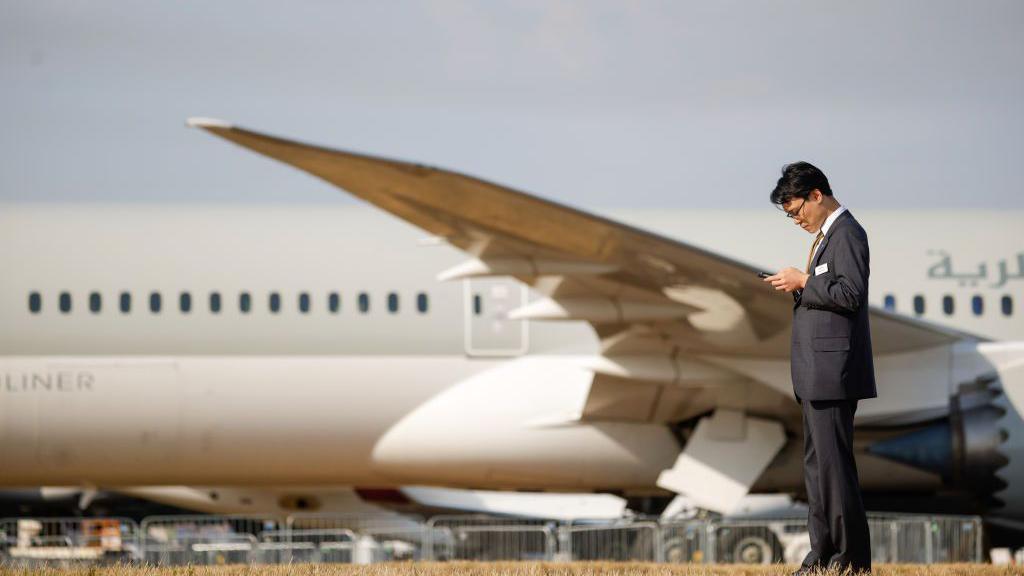Qatar Airways has agreed to purchase up to 210 Boeing aircraft, a $96 billion deal announced by President Trump during his Middle East visit. The White House lauded the agreement, highlighting its potential to support 154,000 US jobs annually and representing Boeing’s largest-ever 787 Dreamliner order.
Both Qatar Airways and Boeing subsequently confirmed the deal, marking a significant win for Boeing amidst recent challenges. The manufacturer experienced setbacks, including a production slowdown following a panel failure in January 2024, resulting in over $10 billion in losses and a seven-week employee strike.
However, Boeing’s stock has risen approximately 20% since January, signaling renewed investor confidence. CEO Kelly Ortberg reported a robust recovery plan, exceeding expectations with 130 aircraft deliveries in the first quarter of the year, alongside a substantial backlog of 5,600 planes.
The Qatar Airways order, comprising 130 Dreamliners, 30 777-9s, and options for 50 additional aircraft, formed part of over $240 billion in US-Qatar economic agreements announced during Trump’s trip. This expands Boeing’s existing relationship with the state-owned airline, which already operates 150 Boeing planes and has over 130 on order, according to Boeing’s website.
“It’s the largest order of jets in the history of Boeing,” Trump stated at the signing. “A record, Kelly, and congratulations to Boeing. Get those planes out there!”
This follows Boeing’s earlier announcement of a deal with Avilease, securing a commitment for 20 737 MAX planes (with options for 10 more) and a significant order from IAG for 32 787-10 aircraft, totaling $13 billion and slated for delivery starting in 2028. Easing US-China trade tensions further aided Boeing, resolving a previous halt in plane acceptance from Chinese customers due to escalating tariffs.
Richard Aboulafia of Aerodynamic Advisory deemed the Qatar Airways deal politically shrewd, yet emphasized that it doesn’t automatically indicate increased aircraft demand or a complete resolution of Boeing’s challenges. Airlines frequently place orders for future delivery dates.
Boeing’s past difficulties centered on meeting delivery deadlines, not a lack of demand. Aboulafia highlighted the ongoing production challenges: “They need to build more planes.” John Grant of OAG described the deal as an important statement for Boeing’s market re-establishment, but unsurprising given their established relationship.
The agreement will cover both inbound and outbound passengers.
The government is accused of ignoring advice to reject the plans over environmental concerns.
The incident traumatised air controllers, and triggered delays at one of New York’s busiest airports.
The incident led to multiple employees being on trauma leave, contributing to hundreds of delayed or diverted flights.
The airline said the changes between 19 May and 7 June will affect 4% of customers.

